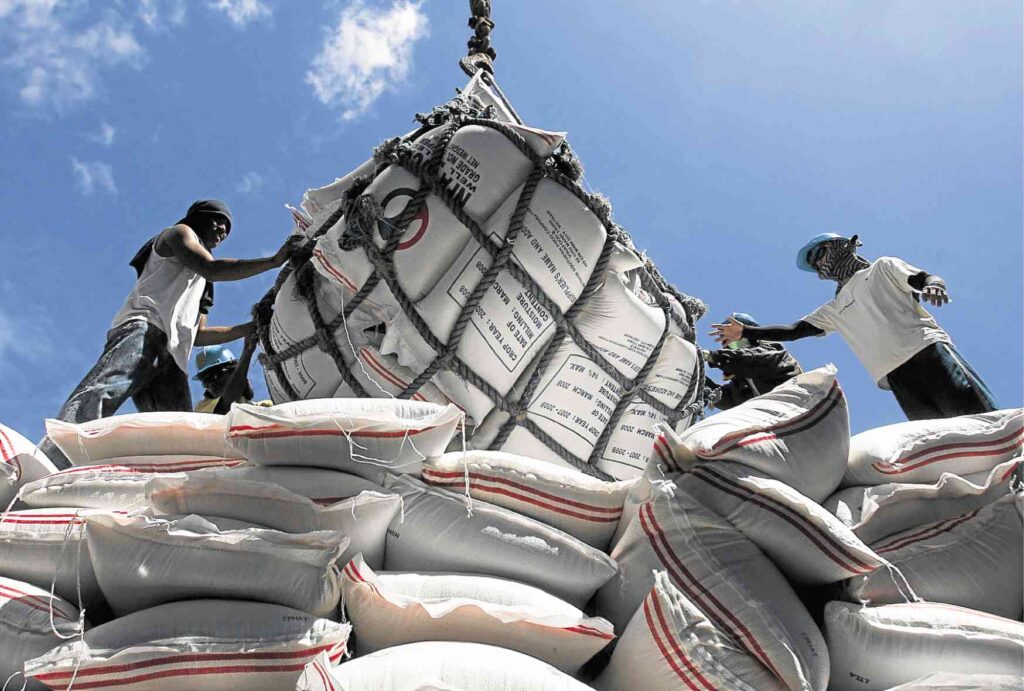PH sees decreased rice imports as local output rises

Imported rice from Vietnam being unloaded in Surigao City port. —FILE PHOTO
Due to increased local production, the Philippines might buy less rice from abroad despite a slight rise in consumption caused by a weaker El Niño.
According to a report by the US Department of Agriculture’s Foreign Agricultural Service, the country’s rice imports for this year could be 4 million metric tons instead of the earlier estimate of 4.1 million metric tons, as domestic production is expected to meet the slight rise in demand.
The USDA’s import projection is relatively flat as “the weakened El Niño forecast will support improved growing conditions for the wet season rice crop resulting in stable import demand.”
It also said the minimum access volume or tariff rate quota for rice imports, set at 350,000 MT, was rendered “largely irrelevant” since at least 90 percent of imported rice comes from Southeast Asian countries.
All rice imports are subject to the tariff rate of 35 percent until end-2024, per Executive Order No. 50 signed by President Marcos in December last year.
The country imported 793,753.49 MT of rice as of March 7, based on data from the Bureau of Plant Industry. Vietnam, as in the previous years, accounted for the majority of the supply with 431,846.72 MT, followed by Thailand with 210,127.38 MT.
In 2023, the volume of rice that entered the Philippines totaled 3.6 million MT, lower than 3.8 million MT last year.
The USDA pegged rice production at 12.125 million MT, citing the latest forecast that El Niño could weaken by April and May, along with the government’s program to support the rice sector and the increased usage of fertilizer and hybrid seeds.
The government, through the Department of Agriculture (DA), funneled P30.8 billion in funding this year to 2.3 million rice farmers nationwide. The allocation was higher than the P15.8 billion the DA received in 2022.Meanwhile, the USDA estimated local consumption to rise in line with population growth.
“Global wheat prices have stabilized, but there was no measurable shift from rice to bread over the past year as both staples experienced inflation,” it added.
The Philippines produced a total of 20.06 million MT of rice in 2023, up by 1.5 percent, according to the Philippine Statistics Authority. It surpassed the previous record output of 19.96 million MT in 2021. —Jordeene B. Lagare INQ
READ MORE: PH set to dominate global rice imports in 2024 — USDA report
Disclaimer: The comments uploaded on this site do not necessarily represent or reflect the views of management and owner of Cebudailynews. We reserve the right to exclude comments that we deem to be inconsistent with our editorial standards.
